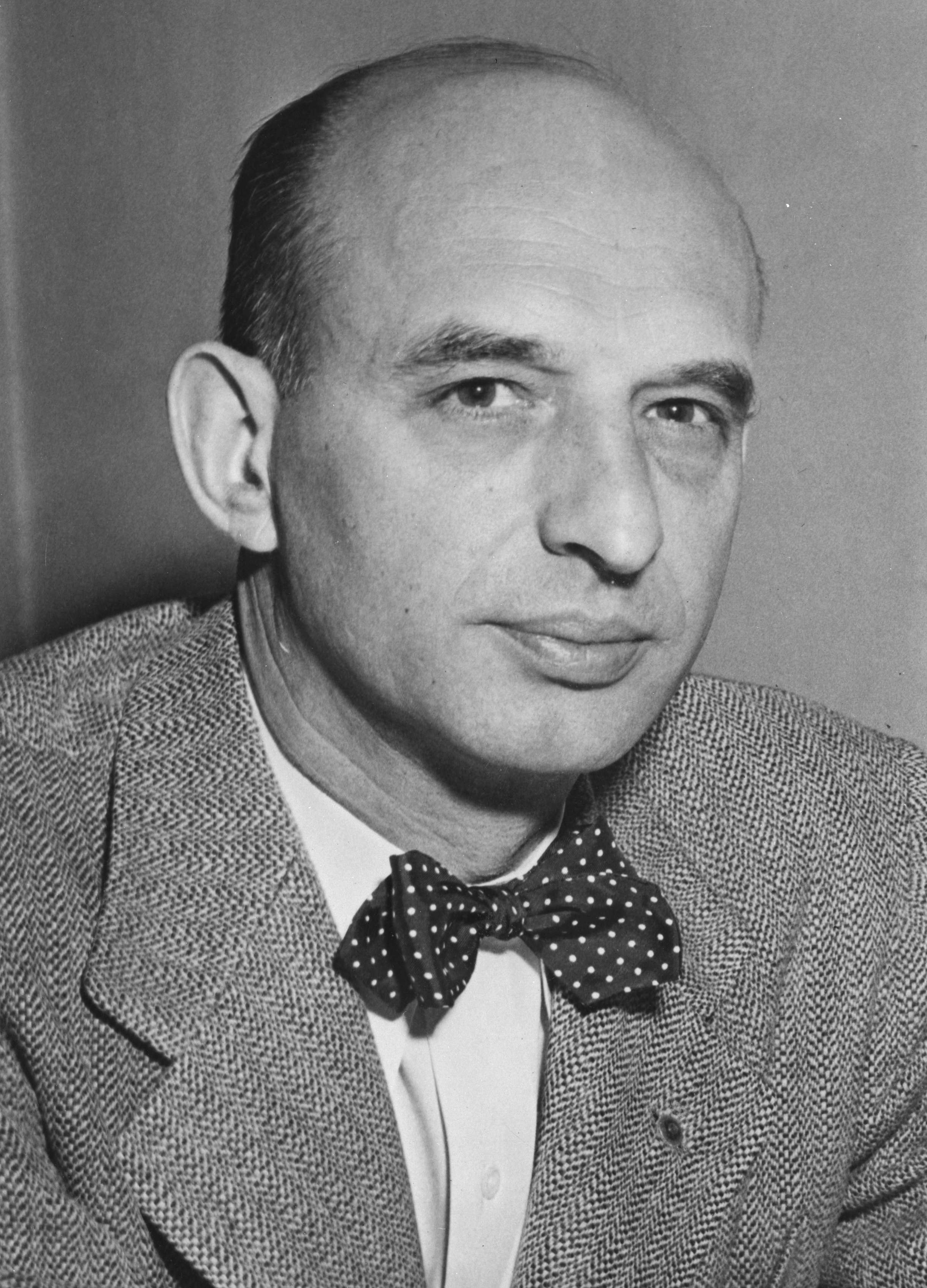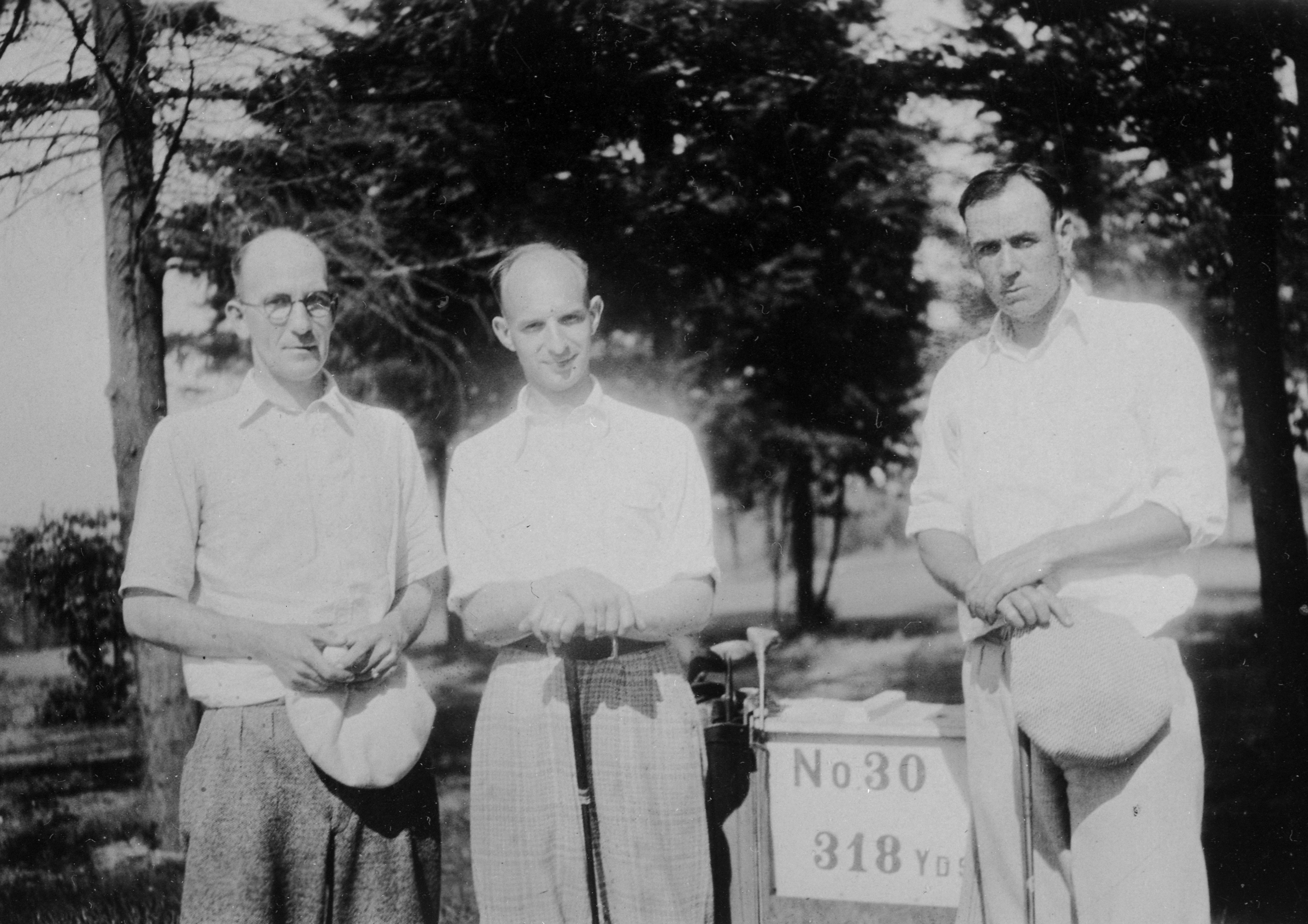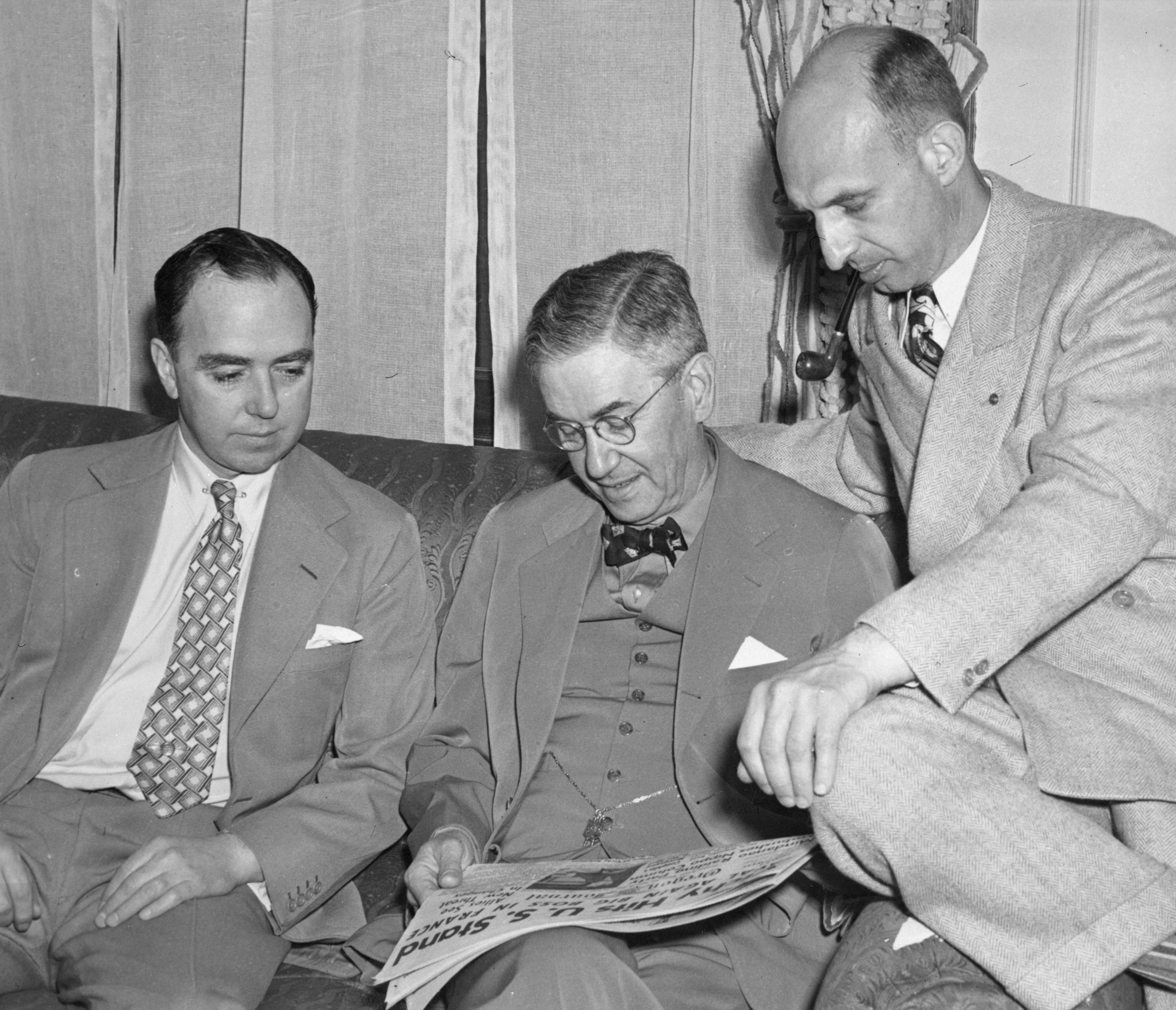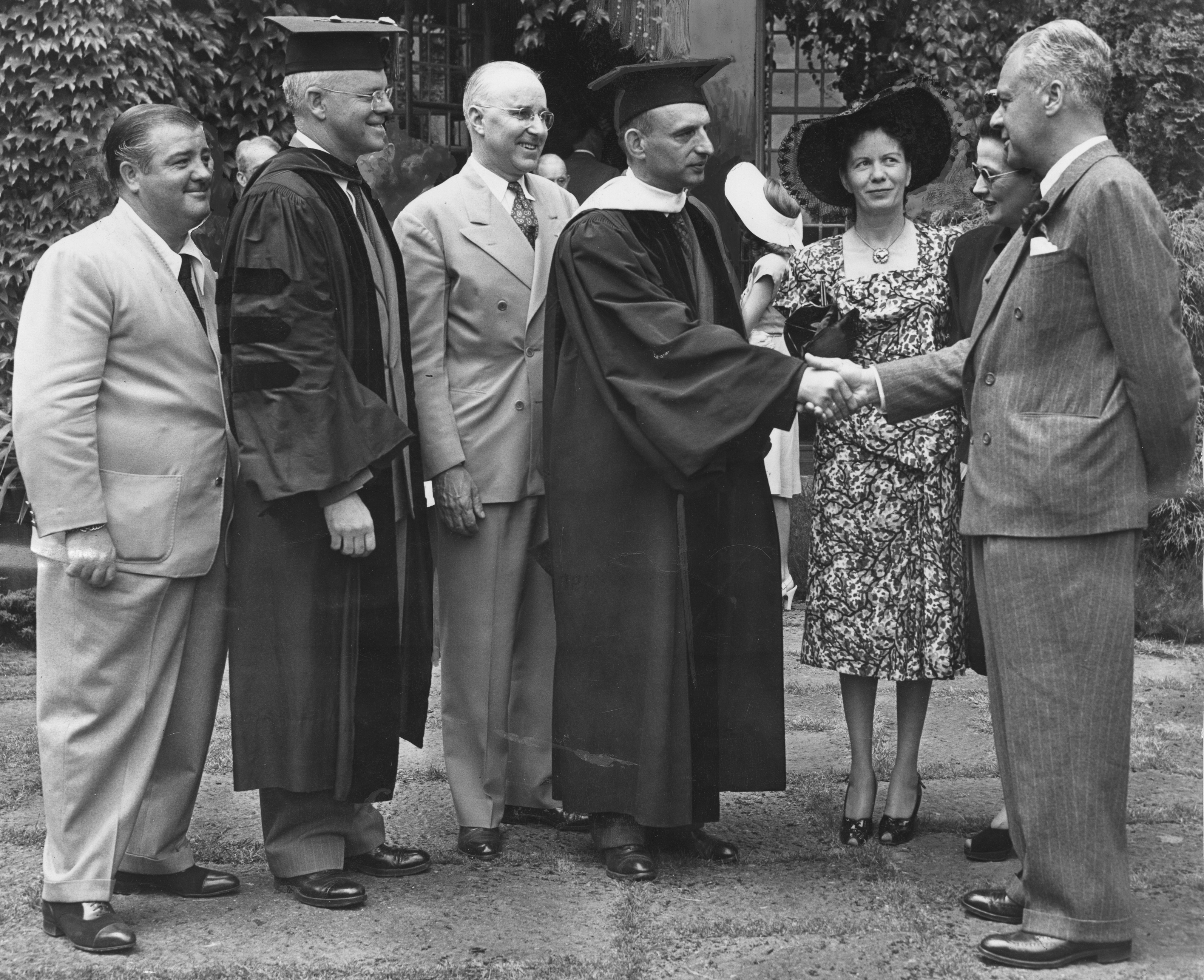Ernest Haycox was an important figure in the development of the popular Western. Diligent, prolific, and ambitious, he wrote twenty-four novels, nearly three hundred short stories and serial installments, and dozens of essays. In the 1930s and 1940s, he may have been Oregon's most widely acclaimed author of magazine fiction.
Haycox was born in Portland on October 1, 1899, to a German-Jewish mother and an itinerant, blue-collar father. He attended public schools and Reed College in Portland before transferring to the University of Oregon, where, majoring in journalism, he graduated in 1923. Already the published author of several adventure stories, Haycox worked briefly as a reporter for the Portland Oregonian before going east to New York City, where he decided to specialize in fiction about the West. In the late 1920s, his writings appeared in several "pulp" magazines, especially Western Story Magazine.
He met Jill Marie Chord of Baker, Oregon, on the train east, and after a few months of courtship, they married in New York City in 1925 and then returned to Oregon the next year. They had two children, Mary Ann and Ernest Jr.
The publication of Haycox's first novel, Free Grass (1929), and his initial appearance in Collier's Magazine in 1931 were important milestones in his budding literary career. A cautious writer by temperament, Haycox followed the Owen Wister-Max Brand-Zane Grey triplex of Westerns: white male heroes, nasty villains, virtuous heroines, and nearly nonstop action. By the time Haycox gained front-cover billing in magazines in the early 1930s, the Western had solidified into a recognizable formula and gained great popularity.
In the 1930s, Haycox became known as a thoroughly competent, dependable writer of magazine fiction. Most of his stories and serials about the West appeared in Collier's and other national magazines, but also in pulp journals such as Short Stories. His experiments with conflicting brunette (vivacious and mysterious) and blonde (virtuous and innocent) heroines and historical Westerns based on railroad building, mining camps, Indian wars, and other western experiences drew positive comments from editors and readers alike.
The most noted of Haycox’s stories, "Stage to Lordsburg" (Collier's, April 1937), became the basis of the landmark Western film Stagecoach (1939), directed by John Ford and starring John Wayne and Thomas Mitchell. By the late 1930s, Collier's was paying Haycox $800 for his stories and perhaps as much as $20,000 for his serials, and he was earning more than $25,000 a year from his writing.
In the early 1940s, while continuing to rely on previous thematic and organizational patterns, Haycox began experimenting with new techniques. The most significant of the innovations was his "Hamlet hero," reflective and analytical protagonists who often had to choose between two women, dark and light, as they moved toward resolution of their own lives. These heroes sometimes served in major supporting roles to historical figures, as Kern Shafter does to General George Custer in Haycox's best-known novel, Bugles in the Afternoon (1944).
Haycox's career reached a new high point in 1943 when two of his serialized novels, The Wild Bunch in Collier's and Bugles in the Afternoon in Saturday Evening Post, ran concurrently. The two serials paid Haycox more than $50,000, increasing his reputation as one of the nation's leading magazine writers. But Haycox wanted more: he wanted to be a leading fiction writer about the historical West who was free from the demands of serial markets.
Haycox turned increasingly to the Oregon Country as the setting for his writing. The best of these novels, The Earthbreakers (1952), overflows with appealing characters, probes descriptions of Oregon landscapes, and reveals depictions of community building. It is a panoramic work that proved that Haycox was on the edge of first-rate artistic achievement. Tragically, as Haycox was completing The Earthbreakers, he was diagnosed with incurable cancer. After two unsuccessful operations, he died on October 13, 1950.
Ernest Haycox was unable to gain the top-shelf status of leading writers of the West, such as Willa Cather, John Steinbeck, and Wallace Stegner, but his three-decade career demonstrated continuous advancement—from his early efforts tied to popular formulas to later works on the cusp of notable western fiction. Unfortunately, with his life cut short at fifty-one, he would never achieve his life-long aspiration of becoming a first-rate western writer.
-
![Ernest Haycox.]()
Haycox, Ernest, bb007153.
Ernest Haycox. Oreg. Hist. Soc. Research Libr., bb007153
-
![(l to r) Arthur B. Epperson, Ernest Haycox, and Bob Case on golf course, about 1928.]()
Haycox, Ernest, on golf course, ca. 1928, bb007127.
(l to r) Arthur B. Epperson, Ernest Haycox, and Bob Case on golf course, about 1928. Oreg. Hist. Soc. Research Libr., bb007127
-
![(l to r) Eugene Raynal, publisher, William Chenery, Colliers editor, and Ernest Haycox, April 1942.]()
Haycox, Ernest, with publishers, Apr 1942, bb007126.
(l to r) Eugene Raynal, publisher, William Chenery, Colliers editor, and Ernest Haycox, April 1942. Oreg. Hist. Soc. Research Libr., bb007126
-
![Ernest Haycox (in gown, r) receiving honorary doctorate from Lewis and Clark College, June 11, 1946. (L to R): Lou Costello, college president Dr. Morgan S. Odell, Governor Earl Snell, Mrs. Haycox and Mrs. Snell.]()
Haycox, Ernest, honorary degree, Jun 1946, bb007161.
Ernest Haycox (in gown, r) receiving honorary doctorate from Lewis and Clark College, June 11, 1946. (L to R): Lou Costello, college president Dr. Morgan S. Odell, Governor Earl Snell, Mrs. Haycox and Mrs. Snell. Oreg. Hist. Soc. Research Libr., bb007161
Map This on the Oregon History WayFinder
The Oregon History Wayfinder is an interactive map that identifies significant places, people, and events in Oregon history.
Further Reading
Etulain, Richard W. Ernest Haycox and the Western. Norman: University of Oklahoma Press, 2017.
Etulain, Richard W. Ernest Haycox. Western Writers Series. Boise, Idaho: Boise State University, 1988.
Haycox, Ernest, Jr. On a Silver Desert: The Life of Ernest Haycox. Norman: University of Oklahoma Press, 2003.
Stephen L. Tanner, Ernest Haycox. New York: Twayne Publishers, 1996.






